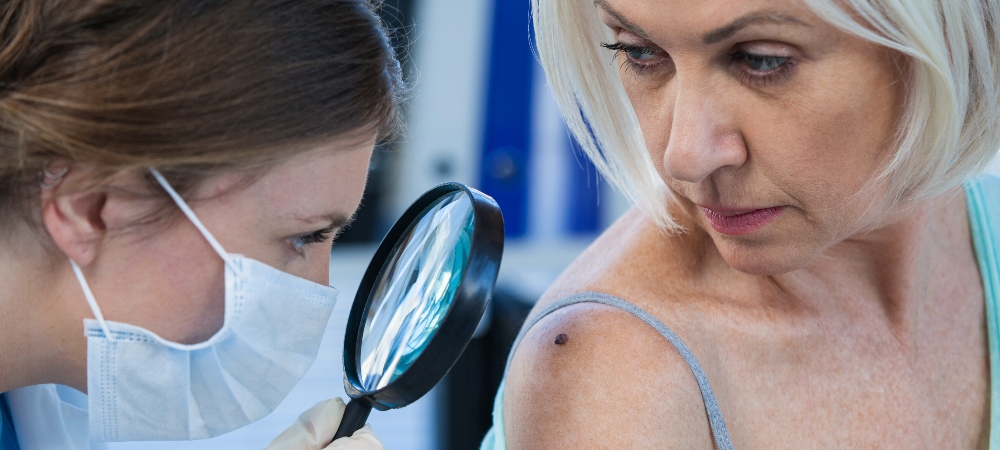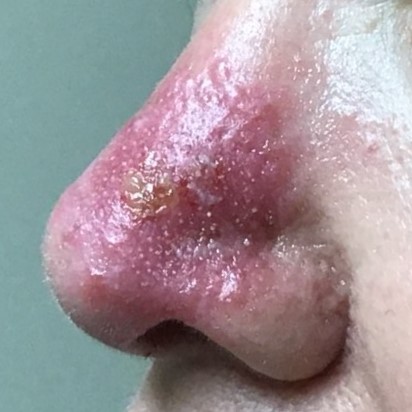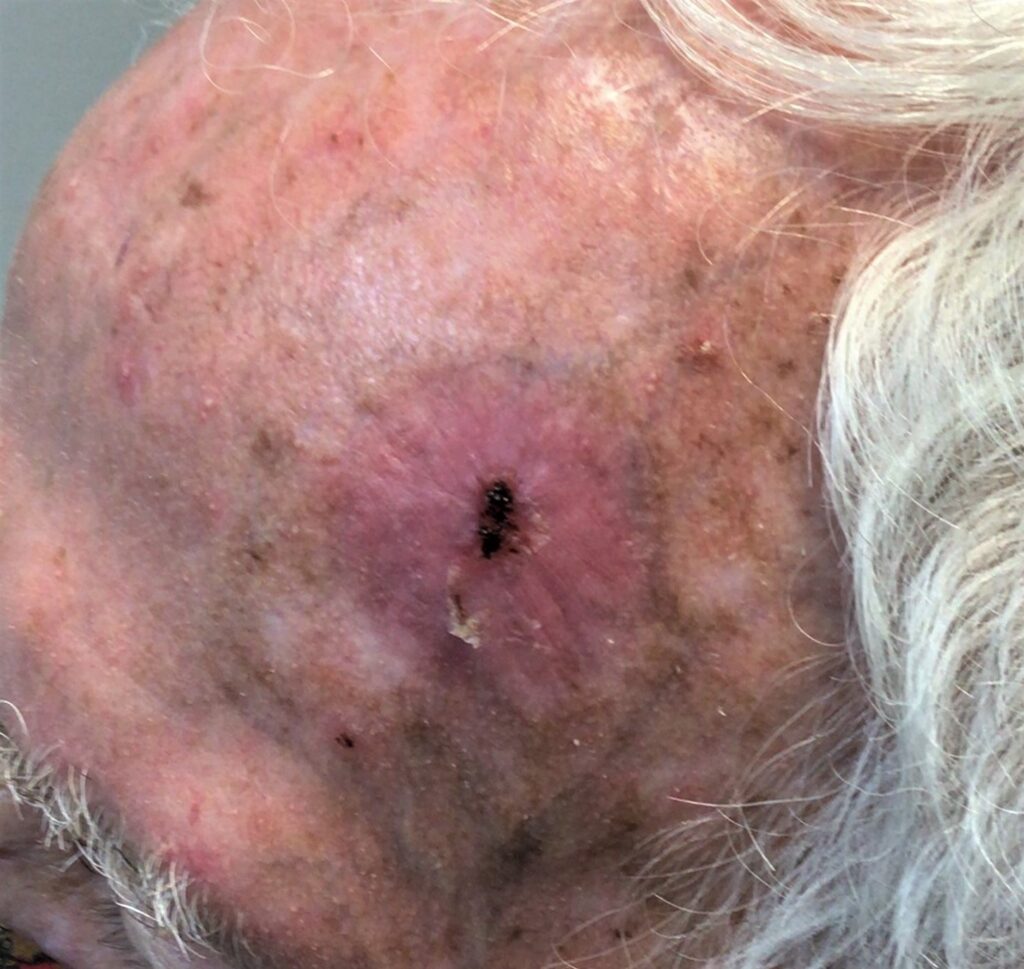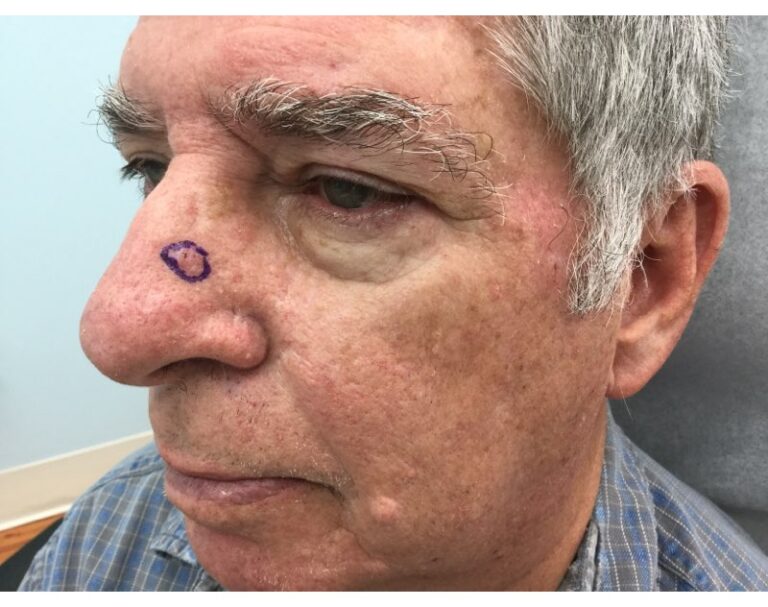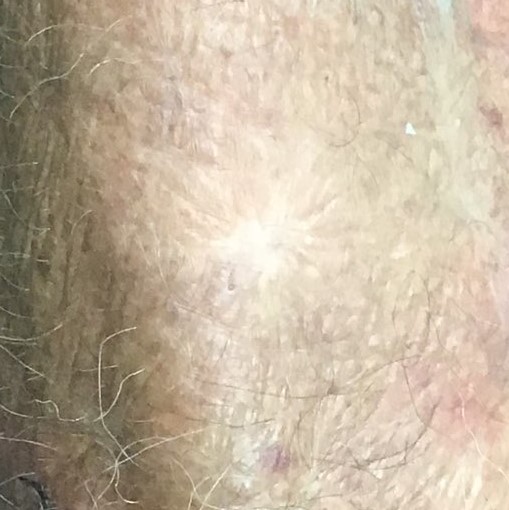
In 2023, singer-songwriter Jimmy Buffett passed away after a four-year-long battle with Merkel cell skin cancer. This has gotten many curious about how this type of cancer can be diagnosed and treated. When it comes to the different types of skin cancer, Merkel cell skin cancer is often cited as one of the most aggressive types while also being one of the rarest types of skin cancer. As of 2011, there were 0.79 per 100,000 people with skin cancer diagnosed with Merkel cell skin cancer.
But what is Merkel cell skin cancer? What types of treatments are available for people with Merkel cell skin cancer? There are several treatments available, as well as new information being discovered as Merkel cell skin cancer undergoes deeper examination. Below, we’ll help you understand the different stages of Merkel cell skin cancer, some of the treatments available, and the ways in which a doctor can help you to work through and overcome this disease.
Merkel Cell Skin Cancer Explanation
No one knows your body better than you do, and being equipped with the proper knowledge about certain types of skin cancer can help you and your doctor identify problems earlier. So, what is Merkel cell skin cancer? The Merkel cell, or the skin-pressure receptor, is located in the top layer of the skin, close to the nerve endings that are responsible for the sensation of touch. When these cells grow out of control — especially on areas of the skin that are exposed to the sun regularly — Merkel cell skin cancer can form. These areas include the head, neck, arms, legs, and torso, depending on your activities.
First truly documented in 1972 by Cyril Toker, the growth rate of Merkel cell skin cancer has since been identified as rapid. This cancer can double its diameter in just a week if left untreated. This cell growth rate is also why it’s so important that Merkel cell skin cancer is caught and treated early. The sooner it’s detected, the sooner you can explore Merkel cell skin cancer treatment options.
What are the Signs of Merkel Cell Skin Cancer?
Merkel cell skin cancer is more common in older, fair-skinned people, however, young adults and children have also been diagnosed with the disease. For African-Americans, Merkel cell skin cancer tends to develop on the legs, while children tend to develop it on the torso.
Merkel cell skin cancer can often be mistaken for any of the following:
- Un-popped pimple
- Sty
- Reddish, raised sore
- An open sore that grows
- Quick-growing spot that bleeds
- Quick-growing dome-shaped growth
- Fast-growing, scaly, mass
- Red, pink, or purple growing spots
- Red or pink insect bite
- Cysts
Because Merkel cell skin cancer tends to form on areas exposed to the sun, it’s not uncommon to see these on the skin without realizing there’s something worse going on under the skin. While Merkel cell skin cancer is not often painful, the area can be sore, tender, or itchy. If your doctor suspects that you might have Merkel cell skin cancer, they’ll check the nearest lymph node to the spot to make sure that the cancer has not spread. This can often include a sentinel lymph node biopsy, performed by a licensed dermatopathologist who will examine the skin cells under a microscope. This may also come with a magnetic resonance imaging (MRI) or positron emission tomography (PET) scan to see if the cancer has spread.
Merkel Cell Skin Cancer Treatments
While Merkel cell skin cancer can be life-threatening if left untreated, the good news is that there are a number of treatment options available for people with this type of cancer. When it comes to treatments, a multidisciplinary approach is recommended for managing and treating Merkel cell skin cancer. Due to the similarity to small-cell lung cancer (including a sensitivity to ionizing radiation and chemotherapy), a mix of surgery, radiotherapy, and chemotherapy are recommended, especially in early diagnosis. These, along with immunotherapy, can greatly increase the chances of remission.
However, it’s important to note that surgery alone is not recommended for treating Merkel cell skin cancer. While surgical excision is used to reduce the chances of the disease from recurring near the initial skin cancer area or the nearby lymph nodes, this has up to a 42% recurrence rate when used alone without any other Merkel cell skin cancer treatments. When used in combination with radiotherapy, recurrence rates can be reduced to as low as 5%.
Below are some of the examples of Merkel cell skin cancer treatments available for people with this type of skin cancer, and who benefits the most from them:
- Surgical Excision: Narrow (1cm) excisions when used in conjunction with radiotherapy or chemotherapy can be beneficial to those with this type of skin cancer.
- Mohs Micrographic Surgery: This is an option for those with Merkel cell skin cancer on the face, where surgical excisions are not recommended.
- Radiotherapy: Radiotherapy is not recommended for patients with very low risk disease markers, which your doctor will cover with you.
- Chemotherapy: Most often reserved for when Merkel cell skin cancer has been detected outside the initial skin cancer area, or later stage detections.
- Immunotherapy: When used in conjunction with other methods, immunotherapy can boost the body’s natural immune system, so that the body is better able to fight off and prevent recurrences.
Learn More About GentleCure™ for Your Skin Cancer Treatment Methods
When it comes to treating skin cancer, you aren’t alone, and surgery doesn’t have to be your only option. GentleCure™ may be right for you. We can help you find treatment for common skin cancers, such as basal cell and squamous cell skin cancer, without you having to worry about stitches, recovery time, and surgical scars. Talk to your doctor about Image-Guided SRT and whether it’s a viable treatment option for your individual case. For more information, contact our skin cancer information specialists online or by phone (855-936-4411) .

